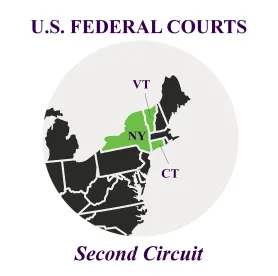On May 22, 2020, Judge Paul Gardephe of the Southern District of New York held that a syndicated term loan was not a “security” under state securities laws. The ruling confirmed the assumption, which has been fundamental to the growth of the syndicated loan market and has not been contradicted by any judicial decision, that syndicated loans are not subject to registration requirements and antifraud provisions promulgated by the Securities and Exchange Commission (“SEC”).
In Kirschner v. J.P. Morgan, a group of institutional investors that had purchased allocations of a term loan (“Plaintiffs”) sued the banks that had arranged the syndication of the loan (“Defendants”), alleging, among other things, violations of various state securities laws, negligent misrepresentation, and breach of the implied covenant of good faith and fair dealing. J.P. Morgan Chase Bank, N.A. (“Chase”) made the initial loan of $1.775 billion to Millennium Laboratories LLC (“Millenium”) on April 16, 2014, and subsequently assigned allocations of the loan to Plaintiffs. At that time, and to Defendants’ knowledge, Millennium was under investigation by the U.S. Department of Justice (“DOJ”) for federal healthcare violations and engaged in unfair competition litigation with a competitor. Following the loan closing and syndication, Millennium lost the litigation, agreed to a substantial settlement with DOJ, and declared bankruptcy.
In the 2014 loan documentation, as a condition to the loan extension, Millennium made certain representations and warranties, including that it had no exposure to material litigation and was in material compliance with applicable regulations and laws. Plaintiffs alleged that Chase knew or should have known that the representations and warranties were false and misleading to loan investors, and that the conditions to making the loan had not been satisfied. Plaintiffs further contended that the loan allocations were “securities” and, therefore, subject to state securities laws.
The Court, applying the “family resemblance” test established by the U.S. Supreme Court in Reves v. Ernst & Young, found that (a) the distribution plan was relatively narrow because Plaintiffs were a small group of sophisticated institutions, not members of the general public; (b) the confidential information memorandum prepared by Defendants and provided to potential investors made clear that the investors were participating in a lending transaction, not investing in securities; and (c) the existence of other regulatory schemes and agencies – such as the Office of the Comptroller of the Currency, the Federal Deposit Insurance Corporation, and the Federal Reserve Board – rendered unnecessary the application of securities laws to the loan. In summary, the Court held that “it would have been reasonable for these sophisticated institutional buyers to believe that they were lending money, with all of the risks that may entail, and without the disclosure and other protections associated with the issuance of securities.”
Syndicated loans, of which nearly $1.2 trillion are currently outstanding, play an important role in the U.S. economy. The assumption that syndicated loans are not “securities” has been fundamental to the growth of the syndicated loan market because, by avoiding the need to register loans with the SEC and limiting exposure to antifraud liability, it affords both borrowers and lenders greater flexibility in accessing sources of debt capital. Elliot Ganz, General Counsel and Chief of Staff for the Loan Syndications and Trading Association, a financial services trade group that filed an amicus brief in Kirschner v. J.P. Morgan, said, “The ruling is a victory for the flow of capital to American businesses.”



 />i
/>i
